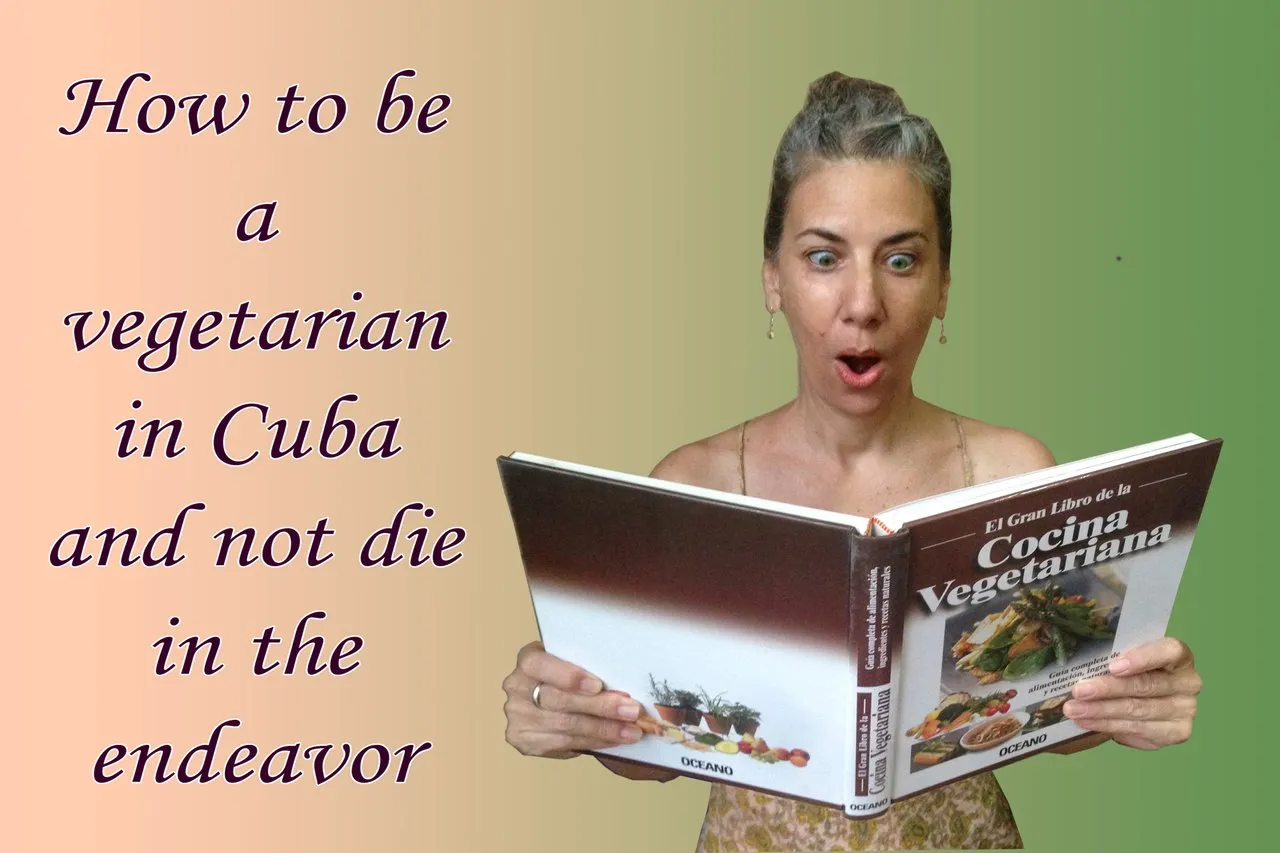

¡¡¡Hola hivers!!!... 🤗 en esta entrada te describo mi experiencia al llevar una dieta vegetariana en Cuba y no morir en ese empeño durante 15 años.👇
A los cubanos que me leen no les es necesario la siguiente explicación; pueden saltar al siguiente párrafo.
A los no cubanos les cuento que en esta isla, a pesar de su clima tropical y su tierra fértil, la carencia o total ausencia de producción local de muchos alimentos, es algo que hemos padecido durante décadas. La mala gestión en las empresas, las limitaciones a los productores y la perdida de muchas tradiciones culinarias han hecho que se desconozcan muchos alimentos que podríamos tener en abundancia.
Entonces, con esta explicación general, doy paso a contar la aventura de un vegetariano en Cuba. 💥
Hace 20 años decidí cambiar mis hábitos alimentarios. -¿Por qué?- Pues… porque me di cuenta que no iba por buen camino. Malas digestiones, gases, estreñimientos, compulsión al comer, dolores tontos por aquí y por allá, síndrome premenstrual insoportable, menstruaciones dolorosas e irregulares, gripes recurrentes, alergias…
Y un sin fin de dolencias que, si ninguna me iba a matar en ese momento, ya avizoraba un futuro incómodo para mi cuerpo y mi mente.
Así las cosas, comencé una búsqueda consciente de todo lo que pudiera mejorar mi estado porque no soporto que me duela o moleste nada, nunca he podido aceptar estar enferma si me lo puedo evitar.
Si bien es cierto que ser vegetariano no es garantía de estar sano, dentro de todo lo que descubrí en aquella época de pruebas y errores, esta fue la opción que mejor acomodé para cambiar mi cuerpo-mente definitivamente y lo hice de la mano de las enseñanzas de la macrobiótica.
De esta manera aprendí muchísimo de nutrición, vi personas en condiciones de salud depauperada sanar completamente y pude llevar adelante un estilo de vida que me complace hasta hoy.
Ser vegetariano en Cuba no es fácil, hay que saber donde buscar. Y para encontrar todos los nutrientes que nuestro cuerpo necesita en un entorno hostil por las carencias, donde el consumo de proteínas animales se potencia hasta la locura, hay que hacerlo con conocimientos y mucha consciencia.
Mi objetivo es darles un paseo por mi experiencia sin que esto se convierta en una guía de nutrición. Cada cual es un mundo en si mismo y si se observa bien irá descubriendo lo que le conviene en el transcurso de esta vida…o no.
La cocina vegetariana actual conjuga un sin fin de técnicas y recetas culinarias de influencia internacional pero yo me voy a remitir a lo que tengo a mano.
Entonces comienzo con las proteínas; y la buena noticia es que no hay que emular a la carne en ninguna preparación, los sabores vienen del mundo vegetal y así los disfrutaremos. Las parrilladas, los salteados orientales, los asados…están llenos de suculencias vegetarianas, variadas y flexibles en todas sus recetas.
Las proteínas son esenciales en la formación de los tejidos celulares y la materia ósea. Están formadas por 24 aminoácidos conocidos, que de ellos son 10 los esenciales por ser los que nuestro cuerpo no puede sintetizar.
Cuando comes productos de origen vegetal el cuerpo extrae estos aminoácidos esenciales de distintos alimentos y los recompone formando las proteínas que necesitamos y listo. No tuvo que morir nadie para alimentarnos ni tu cuerpo tuvo que luchar con la dura digestión de la carne y los desechos metabólicos bien tóxicos que produce.
Dicho esto… en mi entorno encuentro combinaciones sabrosas que cumplen este objetivo; el típico plato de arroz y frijoles, el pan con hummus (tengo recetas con cualquier grano), pasta al pesto (lo hago con almendras, maní o ajonjolí)…y en fin, todo plato que contenga una porción de algún cereal (arroz, maíz, trigo, cebada, mijo, sorgo, avena,) y alguna legumbre (frijoles, judías, chicharos, lentejas, garbanzos, habas).
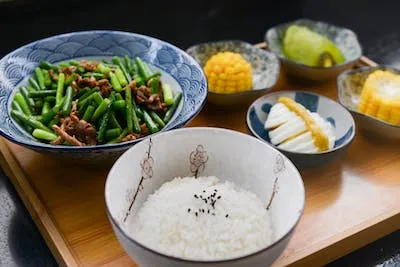
Súmale los famosos frutos secos y semillas (autenticas minas de proteínas, vitaminas del grupo B, minerales, aceites, fibra y antioxidantes) Sara… que en Cuba no ha frutos secos… te cuento que si hay; el maní, el coco, la almendra, el marañon (anacardo), y de semillas tenemos, girasol, ajonjolí (sésamo) y calabaza… vamos bien de momento.
Las grasas almacenan algunas vitaminas y cumplen ciertas funciones en nuestro cuerpo.
No te puedes pasar… 😏 ya lo se. Que se pone difícil conseguirlas en Cuba…😣 también lo se. Pero vamos a ver lo que nos conviene en el tema grasas y después vemos donde las conseguimos.
Entonces, a grandes rasgos para no hacer el cuento largo; las grasas saturadas (esas que suben el colesterol malo) vienen de alimentos de origen animal y las grasas insaturadas (de colesterol bueno) son de origen vegetal, trayendo consigo ácidos grasos esenciales que el cuerpo no puede sintetizar (EFA). En este punto; moderación con las grasas y elegir las de origen vegetal.
Aceites hay montones, de buena y mala calidad, y todo depende del bolsillo y la posibilidad de conseguirlos, recordar que hablo de Cuba.
Aceite de oliva (si tu economía lo permite; siempre), aceite de girasol (si te enteras donde hay; márcame en la cola), aceite de coco (saca un poco para darte unos masajes), aguacate (asegurados 4 meses al año), aceite de ajonjolí, maní o almendras (reto a los creativos inventores de la comunidad para hacer un extractor de estos).
Ya pueden ver la variedad de aceites que podríamos disfrutar, unas veces tengo de uno o de otro (🤐 según encuentre y no entraré en detalles). A excepción del de Oliva, que es de importación obligada, con ingenio y libertad podríamos tener en abundancia muchos de estos cotizados aceites vegetales en la producción nacional.
Llegó la fuente de energía para movernos mucho 🏃♀️. Pues si señor, los hidratos de carbono son los que aportan calorías, y cuidadito que si te pasas ya sabes la de michelines que empiezan a salir.
Un buen dato es que los alimentos llamados carbohidratos también contienen proteínas, vitaminas y minerales. Los encontramos en cereales, tubérculos y azúcares.
¡carbohidratos complejos de buena calidad tenemos suficiente los nacidos en estas tierras! Boniato, yuca, malanga, ñame, frutas… mas el arroz y el maíz que son los cereales básicos de nuestra dieta cultural.
Vamos a tener siempre en cuenta que consumir los carbohidratos en su forma integral, sin refinar y sin procesos industriales nos aportan la fibra maravillosa que barre con parte de las toxinas acumuladas en el organismo. Y que el azúcar así como la conocemos, blanca y bonita, solo nos aporta calorías vacías, nada más 👎.
Los tesoros de la dieta, los que impiden que nos pongamos viejos antes de tiempo, los que nos evitan un montón de enfermedades porque protegen a las células de los radicales libres que produce el propio metabolismo.
Estamos en un país tropical; frutas, hortalizas y verduras frescas deberían haber por doquier, llenitas de estos antioxidantes. A veces se pone difícil encontrar frutas o verduras…🙏 estoy mas que consciente. Pero… 😉 tenemos opciones; quien tenga patio que lo plante y haga un pequeño huerto de autoconsumo.
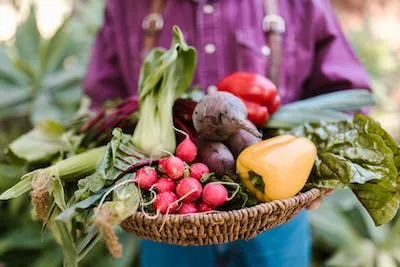
Los que vivimos en la ciudad…tenemos que zapatearlos por ahí y pagarlos al precio que dicte el mercado, no queda otra. Pero una vez que sabes la importancia de los antioxidantes, los vas a buscar donde sea.
Piel y mucosas sanas, constituyentes del esqueleto, la contracción y relajación de los músculos son algunas de la funciones de los minerales. ¿dónde los encontramos en buenas cantidades? En todas las hortalizas y en todas las frutas.
Una observación socio-cultural; la ensalada siempre es la parte mas pírrica del plato del cubano; cuando debería ser lo contrario. Póngase una buena fuente de ensalada y descubrirá los beneficios sin que nadie se lo diga.
Que están muy caros 😬…ya lo se, más cara es la carne de cerdo y gastas ingentes cantidades de energía y estrés en tratar de conseguirla. Sin ella puedes vivir perfectamente (y bien saludable), sin vitaminas y minerales en abundancia enfermarás antes de que lo imagines.
Dan sabor y contienen vitaminas, minerales, antioxidantes y propiedades farmacéuticas. Nuestra bella Cubita esta llena todo el año de yerbitas hermosas como la albahaca, el orégano, la menta, el perejil, culantro, la salvia, el romero, hojas de limón… y dependiendo la región de la isla, otras mas.
Entre las especias de importación que por el alto consumo en nuestra cultura culinaria no faltan en el mercado (allende los precios) son; el comino, la pimienta, la canela, la nuez moscada, el anís estrellado, la vainilla, y la que me falte me la recuerdas.
Tenemos también raíces maravillosas como el jengibre y la cúrcuma. El infaltable ajo, la cebolla, el cebollino, el ajo porro, los ajies… Entonces que por sabor, nadie se queje 💚.
La dieta vegetariana es aquella que no incluye carnes, pollo, pescado, o subproductos de estos. Muchos vegetarianos (como yo) incluyen huevos, miel y lácteos. Las personas que no consumen estos últimos son los llamados Veganos.
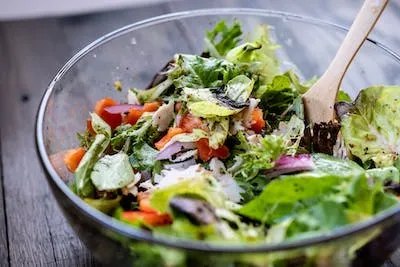
Por lo tanto, como la considerable variedad de lo que comemos viene del mundo vegetal, no todo lo que se hace es muy sano. En líneas generales y como una brújula tengo la consideración de que todo alimento producido industrialmente está dentro del consumo mínimo o nulo si es posible.
Elegir siempre los más naturales, de estación y de producción regional es una regla de oro que el cuerpo, la mente y los años te estarán muy agradecidos.
Tenemos una condición física determinada por la edad, la historia de nuestro cuerpo (enfermedades, accidentes, embarazos, partos, lesiones, etc..), la genética, la cultura en que vivimos…y otro montón de cosas. Pues cada una de estas condiciones tiene requerimientos nutricionales diferentes.
Al respecto; te dejo la invitación a indagar en el tema. Investiga, según tu condición física, las cantidades de nutrientes de los distintos grupos que necesita tu cuerpo en este momento de tu vida quitando el factor carne de la dieta… y algún día me comentas 😉.
Es un ejercicio de autoconocimiento, que aún comiendo carnes toda la vida, te pone en perspectiva para tomar conciencia de lo que realmente necesita tu cuerpo.
Si llegaste hasta aquí leyendo, es que te interesa el tema y tengo algo que decirte para finalizar. Todos somos diferentes y asumimos la vida de formas disímiles pero la cultura y la educación tienen un papel protagónico en la formación de los gustos, determinando inconscientemente qué consumimos por la boca, el oído, la nariz y los ojos. La bella noticia que te traigo es que el gusto es educable.
La decisión de no comer productos animales es muy personal. Podemos escuchar muchas razones; por salud, por ecología, por militar en la protección animal…etc. pero debe ser tomada con todo el conocimiento que conlleva.
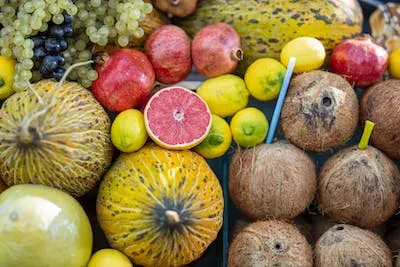
Mi experiencia es mi mejor ejemplo, mi salud hoy día es mejor que hace 20 años atrás. Los amigos vegetarianos que tengo cerca (todos pasan los 50 años) viven sin padecimientos crónicos. Consumir de manera responsable es sinónimo de amarnos y respetarnos.
Cuando me pregunta un medico; -¿de qué padece?-...y mi respuesta es –de nada- puedo ver cara de inquisición como si fuese obligado padecer de algo. Se han normalizado la diabetes, la hipertensión y otras enfermedades después de “cierta edad”, cuando en realidad, son perfectamente evitables en la inmensa mayoría de los casos. Por eso, después de 15 años sin comer animales y con toda responsabilidad, puedo decir que vale la pena.
Siendo cubana, se muy bien el compromiso que implica hablar de dietas cuando la realidad “obliga” a aprovechar lo que aparezca y sea comestible. Lo que puedo hacer es ponerme a total disposición para dar tips de cocina vegetariana (mi estilo) a quien quiera. Mis artimañas frente al fogón las compartiré con mucho gusto 💚🙏💚.
(Te dejo como dato curioso, este enlace a un articulo de la revista Cuerpomente que habla de 11 deportistas famosos que son veganos y así han alcanzado sus increíbles logros.)
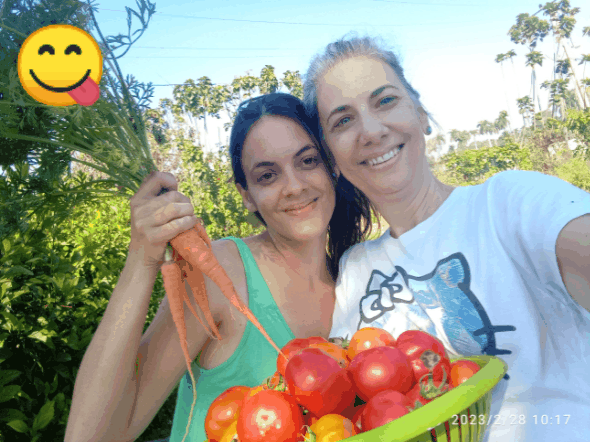

Fuente de la imagenes utilizadas:
1- Baner y separador diseñados por mi en Photoshop con foto de mi propiedad sirviendo yo misma de modelo.
2- Pexel
3- Pexel
4- Pexel
5- Pexel

Hello hivers!!!...in this post I am going to describe my experience in eating a vegetarian diet in Cuba and not dying in that endeavor for 15 years.
For the Cubans who read me, the following explanation is not necessary; they can skip to the next paragraph.
To non-Cubans, I tell them that in this island, in spite of its tropical climate and fertile land, the lack or total absence of local production of many foods is something we have suffered for decades. The bad management in the companies, the limitations to the producers and the loss of many culinary traditions have made that many foods that we could have in abundance are unknown.
So, with this general explanation, I give way to tell the adventure of a vegetarian in Cuba.
Twenty years ago I decided to change my eating habits. Why? Well... because I realized that I was not on the right track. Bad digestion, gas, constipation, compulsive eating, silly pains here and there, unbearable premenstrual syndrome, painful and irregular menstruation, recurrent flu, allergies....
And a myriad of ailments that, if none of them was going to kill me at that moment, I already foresaw an uncomfortable future for my body and mind.
So, I began a conscious search for everything that could improve my condition because I can't stand to be in pain or bothered by anything, I have never been able to accept being sick if I can avoid it.
Although it is true that being vegetarian is not a guarantee of being healthy, within all that I discovered in that time of trials and errors, this was the option that best suited me to change my body-mind definitely and I did it hand in hand with the teachings of macrobiotics.
In this way I learned a lot about nutrition, I saw people in poor health conditions heal completely and I was able to carry out a lifestyle that pleases me to this day.
Being a vegetarian in Cuba is not easy, you have to know where to look. And to find all the nutrients that our body needs in a hostile environment by the shortages, where the consumption of animal protein is enhanced to the point of madness, you have to do it with knowledge and a lot of awareness.
My goal is to give you a walk through my experience without this becoming a nutrition guide. Everyone is a world in itself and if you observe yourself well you will discover what suits you in the course of this life...or not.
The current vegetarian cuisine combines an endless number of techniques and culinary recipes of international influence but I am going to refer to what I have at hand.
So I start with proteins; and the good news is that there is no need to emulate meat in any preparation, the flavors come from the vegetable world and that is how we will enjoy them. Grills, oriental stir-fries, roasts... are full of vegetarian succulences, varied and flexible in all their recipes.
Proteins are essential in the formation of cellular tissues and bone matter. They are made up of 24 known amino acids, of which 10 are essential because they are the ones that our body cannot synthesize.
When you eat products of vegetable origin the body extracts these essential amino acids from different foods and recomposes them forming the proteins we need and that's it. No one had to die to feed us nor did your body have to struggle with the harsh digestion of meat and the very toxic metabolic waste it produces.
That said... in my environment I find tasty combinations that meet this objective; the typical rice and beans dish, bread with hummus (I have recipes with any grain), pesto pasta (I make it with almonds, peanuts or sesame seeds)... and finally, any dish that contains a portion of some cereal (rice, corn, wheat, barley, millet, sorghum, oats,) and some legume (beans, beans, peas, lentils, chickpeas, lima beans).
Add the famous nuts and seeds (authentic mines of proteins, vitamins of the B group, minerals, oils, fiber and antioxidants) Sara... that in Cuba there are no nuts... I tell you that there are; peanuts, coconut, almonds, cashew nuts, and of seeds we have sunflower, sesame and pumpkin... we are doing well for the moment.
Fats store some vitamins and fulfill certain functions in our body.
You can't overdo it... I know. It's hard to get them in Cuba...I know that too. But let's see what's good for us in terms of fats and then we'll see where we can get them.
So, to make a long story short; saturated fats (those that raise bad cholesterol) come from animal foods and unsaturated fats (good cholesterol) are of vegetable origin, bringing with them essential fatty acids that the body cannot synthesize (EFA). At this point; moderation with fats and choose those of vegetable origin.
There are lots of oils, of good and bad quality, and it all depends on your pocket and the possibility of getting them, remember that I am talking about Cuba.
Olive oil (if your economy allows it; always), sunflower oil (if you find out where you can find it; mark me in the queue), coconut oil (get some to give yourself a massage), avocado (guaranteed 4 months a year), sesame, peanut or almond oil (I challenge the creative inventors of the community to make an extractor of these).
You can see the variety of oils that we could enjoy, sometimes I have one or the other (depending on what I find and I will not go into details). With the exception of olive oil, which is of obligatory import, with ingenuity and freedom we could have in abundance many of these quoted vegetable oils in the national production.
The source of energy to move a lot has arrived. Well, yes sir, carbohydrates are the ones that provide calories, and be careful, if you overdo it, you know how many love handles will start to appear.
A good fact is that foods called carbohydrates also contain proteins, vitamins and minerals. We find them in cereals, tubers and sugars.
We born in these lands have enough good quality complex carbohydrates! Sweet potatoes, cassava, malanga, yams, fruits... plus rice and corn which are the basic cereals of our cultural diet.
Let's always keep in mind that consuming carbohydrates in their whole form, unrefined and without industrial processes provide us with the wonderful fiber that sweeps away part of the toxins accumulated in the body. And that sugar as we know it, white and pretty, only brings us empty calories, nothing more.
The treasures of the diet, those that prevent us from getting old before our time, those that prevent us from a lot of diseases because they protect the cells from free radicals produced by the metabolism itself.
We are in a tropical country, fruits, vegetables and fresh vegetables should be everywhere, full of these antioxidants. Sometimes it gets difficult to find fruits or vegetables...I am more than aware. But... we have options; whoever has a yard can plant it with fruits and make a small vegetable garden for self-consumption.
Those of us who live in the city...we have to zap them around and pay for them at the price dictated by the market, there is no other choice. But once you know the importance of antioxidants, you're going to look for them everywhere.
Healthy skin and mucous membranes, skeletal constituents, muscle contraction and relaxation are some of the functions of minerals. Where do we find them in good quantities? In all vegetables and fruits.
A socio-cultural observation; salad is always the most pyrrhic part of the Cuban's plate; when it should be the opposite. Get a good bowl of salad and you will discover the benefits without anyone telling you.
That they are very expensive...I know, pork is more expensive and you spend enormous amounts of energy and stress trying to get it. Without it you can live perfectly well (and healthy), without plenty of vitamins and minerals you will get sick before you know it.
They give flavor and contain vitamins, minerals, antioxidants and pharmaceutical properties. Our beautiful Cuba is full all year round of beautiful herbs such as basil, oregano, mint, parsley, cilantro, sage, rosemary, lemon leaves... and depending on the region of the island, others.
Among the imported spices that due to the high consumption in our culinary culture are not lacking in the market (beyond prices) are: cumin, pepper, cinnamon, nutmeg, star anise, vanilla, and the one I miss, remind me.
We also have wonderful roots such as ginger and turmeric. The inevitable garlic, onion, chives, chives, garlic, chili peppers... So no one should complain about the taste.
A vegetarian diet is one that does not include meat, poultry, fish or their by-products. Many vegetarians (like me) include eggs, honey and dairy. People who do not consume the latter are called Vegans.
Therefore, as the considerable variety of what we eat comes from the vegetable world, not everything that is made is very healthy. Generally speaking and as a compass I have the consideration that all industrially produced food is within the minimum or null consumption if possible.
Always choose the most natural, seasonal and regionally produced is a golden rule that the body, mind and years will be very grateful.
We have a physical condition determined by age, the history of our body (diseases, accidents, pregnancies, births, injuries, etc...), genetics, the culture in which we live...and a lot of other things. Each of these conditions has different nutritional requirements.
In this regard, I invite you to investigate the subject. Investigate, according to your physical condition, the amounts of nutrients from the different groups that your body needs at this time of your life, removing the meat factor from your diet... and someday you will tell me about it.
It is an exercise in self-knowledge, that even eating meat all your life, puts you in perspective to become aware of what your body really needs.
If you have read this far, it means that you are interested in the subject and I have something to tell you to finish. We are all different and we assume life in dissimilar ways but culture and education have a leading role in the formation of tastes, unconsciously determining what we consume through the mouth, ear, nose and eyes. The beautiful news I bring you is that taste is educable.
The decision not to eat animal products is a very personal one. We can listen to many reasons; for health, for ecology, for military in animal protection ... etc. but it must be taken with all the knowledge that goes with it.
My experience is my best example, my health today is better than 20 years ago. The vegetarian friends I am close to (all of them are over 50 years old) live without chronic ailments. Consuming responsibly is synonymous with loving and respecting ourselves.
When a doctor asks me: "What do you suffer from? and my answer is "nothing", I can see an inquisitive face as if it were obligatory to suffer from something. Diabetes, hypertension and other diseases have been normalized after "a certain age", when, in fact, they are perfectly avoidable in the vast majority of cases. That is why, after 15 years without eating animals and with all responsibility, I can say that it is worth it.
Being Cuban, I know very well the responsibility that implies talking about diets when reality "forces" to take advantage of whatever appears and is edible. What I can do is to make myself totally available to give tips on vegetarian cooking in my Cuban way to whoever wants. I will gladly share my tricks in front of the stove.

